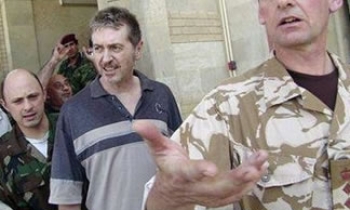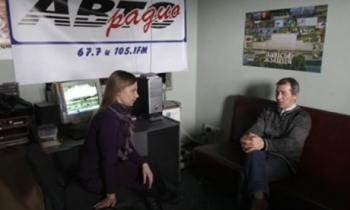COPENHAGEN, Feb 3 (Reuters) - European Muslims, some bearing aloft banners threatening a "9/11" for Europe, ratcheted up their anger on Friday over controversial cartoons depicting the Prophet Mohammad, despite some imams calling for calm.
After holy day prayers at a mosque in central London, a group of 300 Muslim demonstrators marched to the Danish embassy to vent their anger, holding placards reading "Exterminate those who insult Islam" and "Europe, your 9/11 will come".
They burnt the Danish flag and threw eggs at the embassy building as they chanted: "Denmark, you will pay".
Denmark, where a newspaper first published the collection of cartoons last year, has felt the brunt of Muslim fury over the issue. But other European countries, including France and Spain, have also been criticised for republishing the images.
Anger over the drawings has spread rapidly across the Muslim world, from Egypt to Iraq to Indonesia. There is also outrage among the millions of Muslims living in Europe, where Islam is the second religion in many countries.
In Copenhagen, where the dispute started last September, around 1,000 Muslims attended prayers to hear leading imam Abu Laban speak. Laban has been instrumental in the criticism of Jyllands-Posten, the newspaper which first printed the images, and has also railed against the Danish government.
So many worshippers turned up at the mosque that many had to pray on carpets outside. Denmark is home to around 180,000 Muslims, giving it one of Europe's smaller Muslim communities.
As well as London and Copenhagen, there were small protests in Paris, where tensions with the large Muslim community there erupted into weeks of rioting and violence last year.
Three police vans with lights flashing were on hand outside the Grand Mosque in the French capital in case of trouble.
Several worshippers said, however, that the local imam had struck a conciliatory tone in his sermon and had called for tolerance over the incident.
"WE WILL NEVER HIJACK EUROPE"
In Copenhagen, Laban was also conciliatory in his sermon, stressing that he accepted the newspaper's apology for having insulted Muslims by publishing the collection of 12 cartoons.
Publishing images of the Prophet is deemed offensive by many Muslims. The cartoons published by Jyllands-Posten and reprinted across Europe included one showing him wearing a turban shaped like a bomb.
"25 million Muslims in this continent will never hijack Europe and western civilisation. Never ever," Laban said.
"We are concerned about the well-being of this society. This is a feeling of gratitude to the country which has accommodated us and given us plenty of services, and is still doing that."
He said Muslims had a religious obligation to defend the status of the Prophet Mohammad in a democracy -- while vigorously rejecting violence as a way of doing so.
"We both believe there is something called 'holy'. Danes say freedom of speech is holy. Muslims say Mohammad is holy.
"Let us sit together and think how to reshape the necessary values and commitment to address this dilemma," he said, adding that he denounced any act of violence in Denmark or elsewhere.
"It is counterproductive," he said.
Despite religious leaders' mollifying tone, many Muslims attending prayers said they were appalled by the cartoons.
"Mohammad is our holy prophet and I am outraged and deeply hurt," said 35-year-old Deniz Metin, on his way to a mosque in a district of Berlin popular with the large Turkish community.
He warned the offence caused by the caricatures could lead to violence.
"Let's hope that what we have seen in the way of terrorist attacks is not spreading to us now. Some of those here who have so far opposed terrorist attacks might now be more in favour of them," he said.
About 3.5 million Muslims live in Germany, the vast majority of them Turkish.
Abdel Rrahmane, visiting Paris from Algiers, said French journalists had the right to attack French values but not religious values from outside the country. "I think it's an unforgivable excess of freedom of expression. I don't think that can be tolerated," he said. "The reactions in the Middle East are totally justified."
(Additional reporting by Jeremy Lovell in London, Anna Willard in Paris, Karin Strohecker in Berlin)









